How I found an agent and got published - An interview with author, Michael Thompkins
firstwriter.com – Saturday March 25, 2006
Michael Thompkins recently secured a publishing deal, thanks to an agent he found using firstwriter.com's database of literary agencies. We asked him about his writing, and how he found success.
fwn: Thank you for taking the time to talk to us, Michael. What is your book called, and where did you get the idea for it?
MT: Gun Play is the title. While visiting Palm Springs, I met a homeless street musician who wanted to be the next John Lennon. I was having coffee with him, and a “What if?” hit me. What if he could identify a hit man and a police psychologist tried to keep him alive?
The Next John Lennon became my first title for my first novel. It was re-titled in pre-publication by my publisher to Gun Play. Yes, that is another story.
fwn: Once you'd got your idea, how did you go about the mechanics of writing it?
MT: Because I am interested in how things work, I was both into getting the story that was “stuck in my head” out and learning how novels work – the architecture of a novel if you will.
I enrolled in the Screen Writing Course at Maui Writer’s Conference. It’s run by Chris Vogler (The Writers Journey). Chris Vogler has taken the work of Joseph Campbell and applied it to the architecture of novels. Screenwriting for a novelist, you ask? The answer is complex but mainly I wanted exposure to Vogler’s theories. I got a lot more. I also hired Chris as story editor for Gun Play. Chris can be located at www.thewritersjourney.com. Two years later, under Chris’s mentoring, I finished Gun Play, and felt like I could write more novels. My novel was a finalist in the Maui Rupert Fiction contest. Yes, contests can help!
fwn: Is it your first attempt at writing?
MT: Gun Play is the first in what I intend to be a long series, the Shooting Shrink Series.
fwn: What do you think a writer needs to concentrate on when trying to secure a literary agent?
MT: Let me say that writers need to see that writing is an art and then a business. One needs to approach an agent with more of the second than the first in mind. I know of better writers than I, who are unpublished because they can’t get a handle on number 2. After you are published, of course, things are easier.
fwn: And how do you see that translating to the mechanics of actually approaching an agent?
MT: You need to approach an agent with a business-like attitude. If they ask you to pay for submission m/s copies, or ask you to pay for line-editing, be willing. The agent is in business. Moreover, they are testing to see if you have a co-operative attitude and whether you are willing to invest in your own success.
I am a psychologist/ lifecoach as well as a novelist, www.doctort.net. I have coached a few writers and have found that they often have two obstacles to overcome. One, is understanding the architecture of the novel so they can actually finish their story. Two, seeing their book as a business and approaching agents with an appropriate attitude.
fwn: What were you looking for when seeking an agent?
MT: My series is set in Palm Springs so I naturally approached an agent who lived in Palm Springs at the time – Lisa Martin. Lisa read the manuscript of Gun Play, loved a story set in her own home town, and we were off and running.
fwn: Were there any particular features of firstwriter.com that were particularly helpful in finding your agent?
MT: I found the geographical search to be helpful in finding Lisa.
fwn: What research did you do beyond using firstwriter.com?
MT: Writing Conferences like Maui Writers Conference can be extremely helpful in learning to pitch to real live agents face to face. By the time I found Lisa, I had pitched to several agents at Maui and they all wanted to read the “first fifty”. So I just called Lisa up, asked her to coffee at Starbucks in Palm Springs (where the Shooting Shrink hangs) and put the manuscript in her hands.
The encounter left me with a sense of “right person”. I could tell she liked the series set in Palm Springs and we were off and running within the month.
fwn: How long did you spend searching for an agent, before you found one?
MT: It took two years to write Gun Play and learn how novels work. Then it took another year to find Lisa and SterlingHouse, my publisher. Three years from idea to publisher.
I submitted to fifteen agents before Lisa and I contracted.
fwn: What were the rejections like?
MT: When one of the first ten or so agents sent me rejections, I would always query back for more info: “I know you are busy but can you tell me why you are not interested?” Agents are busy people but they are people, and they don’t know for sure that (a) they won’t learn something from you, and (b) you might send them clients someday when you are published and famous.
I carefully sorted through feedback. An agent in NY suggested I do more “showing” and less telling of the story. I revised around her input. A truism for psychologists is that the truth can arrive in many forms. Good revision input can come from many sources.
fwn: What do you think was the reason why Martin-Mclean Literary Associates signed you?
MT: Mutual affinity, the beginnings of trust and liking each other and a sense we were both business savy.
fwn: Am I right in thinking that Lisa Martin offers an optional reviewing service? Some have alleged that this is a reading fee by another name. Did you have to pay to have your book reviewed by her?
MT: I did not elect this detailed evaluation as I had already paid Chris Vogler and a line-editor to prepare my novel. Story consulting is something I enjoy myself and have just finished my second client.
By the time I approached an agent, I had invested a modest sum of capital in my future as a writer not including the many trips to the Maui Writers Conference. Lisa Martin took my entire novel and offered me representation immediately. Her faith in my novel has not flinched.
fwn: How have things changed, now that you have an agent?
MT: The good news is that you have an agent. The bad news is that you still have to wait and invest time, patience and a little money in yourself.
Lisa found my publisher in six months; it can take years. That’s where the trust and the investment comes in.
It helped me enormously to have a second novel to work on and my coaching work to be involved in.
fwn: After you secured your agent, how long did it take to find a publisher?
MT: Lisa submitted to over thirty publishers. We kept careful records of rejections and reasons.
If a publisher has something nice to say but isn’t interested now, remember, that they may be helpful later. It is your career.
fwn: How critical do you think having an agent was in securing your publishing deal?
MT: Given today’s litigious life, it is hard for a publisher to take a client without an agent. The publisher could be asked in a lawsuit why they took advantage of an author.
fwn: How's the process of publication going?
MT: Let me disclose that Lisa has become a friend and I trust her both personally, and professionally. My dealings with SterlingHouse have been totally professional. In the matter most important to me – the integrity of the Gun Play story – they gave me almost total final editorial support. I suspect this may be the most important item for most writers. Cindy Sterling has been nothing but fair and supportive.
fwn: Some people have alleged that Lisa Martin has only ever sold books to various imprints of SterlingHouse, and that this is a vanity publisher. Have you had to pay to have your book published by SterlingHouse?
MT: Lisa submitted Gun Play to over fifty publishers. I picked SterlingHouse because it was small, personal and the contract Lisa negotiated was superb. I am not paying SterlingHouse to publish Gun Play. Lisa negotiated a better contract for me than I expected as a first time novelist. She continues to represent me professionally and aggressively.
fwn: So what do you make of these allegations?
MT: First time writers need to be flexible and view their work as their business. Agents and publishers prefer writers who think as entrepreneurs and are co-responsible for promoting their work. The simplest recipe for failure in the industry is to (1) not hire a story consultant, or a line editor, (2) argue with your agent, (3) take a large advance on your first novel, (4) not help your publisher sell your novel by expecting them to pay for all advertising, and (5) sell less than your advance. This recipe will leave you published but in the hinterlands.
fwn: What do you find your role to be now? Writer? Publicist? Both?
MT: I am busy writing the second novel in the Shooting Shrink Series, Big Island Play. I plan to do as much as SterlingHouse to publicise Gun Play.
fwn: What's the schedule for the book being released? How widely is it going to be distributed?
MT: 2006 worldwide distribution. Other countries are still very interested in our culture in spite of current world political flaps.
fwn: Do you have any general tips or advice for other writers trying to get published or get an agent?
MT: Get help from seasoned coaches. Invest in your skills. Learn the architecture of fiction, nonfiction and screenplays. Develop a sense of business ownership of, and investment in, your own creative product.
fwn: What are your plans for the future?
MT: I have been lucky to have a successful career as a psychologist lifecoach. Now, I want to do something that involves becoming a good writer, meeting more people and travelling. Fortunately, my first hero is a police psychologist, Doctor Tom Reynolds. He’s a wonderful Walter Mitty with some overlap. I intend to write about him as long as I can breathe. I also intend to write outside of my genre soon.
fwn: Thank you for taking the time to talk to us, Michael, and best of luck with your book!
To learn more about Gun Play, go to http://www.pembertonmysteries.com/Pages/Books/2006_GP.html
Semi-retired psychologist, Dr. Michael Thompkins, has been a fan of detective fiction ever since he first picked up Raymond Chandler; now Dr. Thompkins writes it. His new hero, “Doc” Reynolds, the “Shooting Shrink” is based in part on his own career in Psychology.
Like his fictional alter ego, Dr. Thompkins is married to a doc, Seattle top doc Judith Babcock. The couple has two grown children, Colin, a consulting software engineer and, Kaitlin, a biochemistry student at U.C.Davis. They live near Seattle, Washington. Dr. Thompkins spends large amounts of time in Palm Springs, California, where the Shooting Shrink Series is set.
Dr. Thompkins enjoys spending his free time researching his next novel, traveling, and communicating with other writers, fans, and his many friends in law enforcement and the military. He served in the United States Army during the Vietnam
Conflict.
Every year since 2001, Dr. Thompkins has attended the Maui Writers Conference. He is a graduate of the Maui Screenwriters Program taught by Chris Vogler, author of The Writer’s Journey and Dr. Thompkins’s mentor and friend. The Next John Lennon, the original title of Gun Play, was a Finalist in the prestigious 2004 Rupert Hughes Contest awarded each year at Maui.




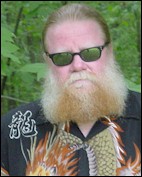 How I got a literary agent - An interview with author James R. Larson
How I got a literary agent - An interview with author James R. Larson How I got a literary agent - An interview with author, Charles Heaton Allen
How I got a literary agent - An interview with author, Charles Heaton Allen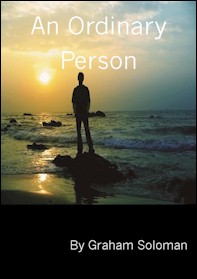 How I got a literary agent - An interview with author, Graham Soloman
How I got a literary agent - An interview with author, Graham Soloman How I got my book published - An interview with author, Marion Grace Woolley
How I got my book published - An interview with author, Marion Grace Woolley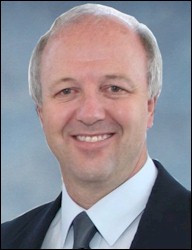 How I got published - An interview with author, Kent Richardson
How I got published - An interview with author, Kent Richardson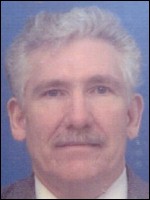 How I got a literary agent - An interview with author Rob Riley
How I got a literary agent - An interview with author Rob Riley How I got a literary agent - An interview with author Geri Spieler
How I got a literary agent - An interview with author Geri Spieler How I got a literary agent - An interview with author Adrienne Schwartz
How I got a literary agent - An interview with author Adrienne Schwartz How I found a publisher - An interview with author, Jack Walker
How I found a publisher - An interview with author, Jack Walker How I got my book published - An interview with author, Stephen Nuttall
How I got my book published - An interview with author, Stephen Nuttall How I got a literary agent - An interview with author, Eric Houghton
How I got a literary agent - An interview with author, Eric Houghton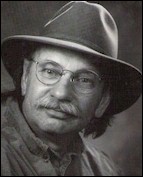 How I got a literary agent - An interview with author David C. Burton
How I got a literary agent - An interview with author David C. Burton How I got a literary agent - An interview with author, Robert W. Morgan
How I got a literary agent - An interview with author, Robert W. Morgan How I got my book published - An interview with author, James J. Garber
How I got my book published - An interview with author, James J. Garber Bournemouth to host romance writing festival for writers
Bournemouth to host romance writing festival for writers New Publisher Listing: Adventure Books by Vertebrate Publishing
New Publisher Listing: Adventure Books by Vertebrate Publishing New Literary Agent Listing: Amandeep Singh
New Literary Agent Listing: Amandeep Singh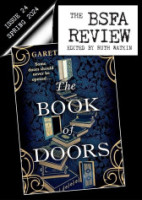 New Magazine Listing: The BSFA Review
New Magazine Listing: The BSFA Review New Publisher Listing: Practical Pre-School Books
New Publisher Listing: Practical Pre-School Books DK ventures into children’s fiction with new imprint DK flip
DK ventures into children’s fiction with new imprint DK flip New Publisher Listing: Sourcebooks eXplore
New Publisher Listing: Sourcebooks eXplore New Book Publisher Listing: Sourcebooks Horror
New Book Publisher Listing: Sourcebooks Horror Hayward poet Pat Doyne holds free metaphor workshop
Hayward poet Pat Doyne holds free metaphor workshop New Publisher Listing: Bearded Badger Publishing Co.
New Publisher Listing: Bearded Badger Publishing Co. Authors await overdue payments as publisher Unbound goes into administration
Authors await overdue payments as publisher Unbound goes into administration New Literary Agency Listing: Children’s Books North Agency
New Literary Agency Listing: Children’s Books North Agency New Spotify Audiobooks publishing programme for independent authors
New Spotify Audiobooks publishing programme for independent authors Publisher Unbound Slides Into Administration
Publisher Unbound Slides Into Administration ChatGPT firm reveals AI model that is ‘good at creative writing’
ChatGPT firm reveals AI model that is ‘good at creative writing’
